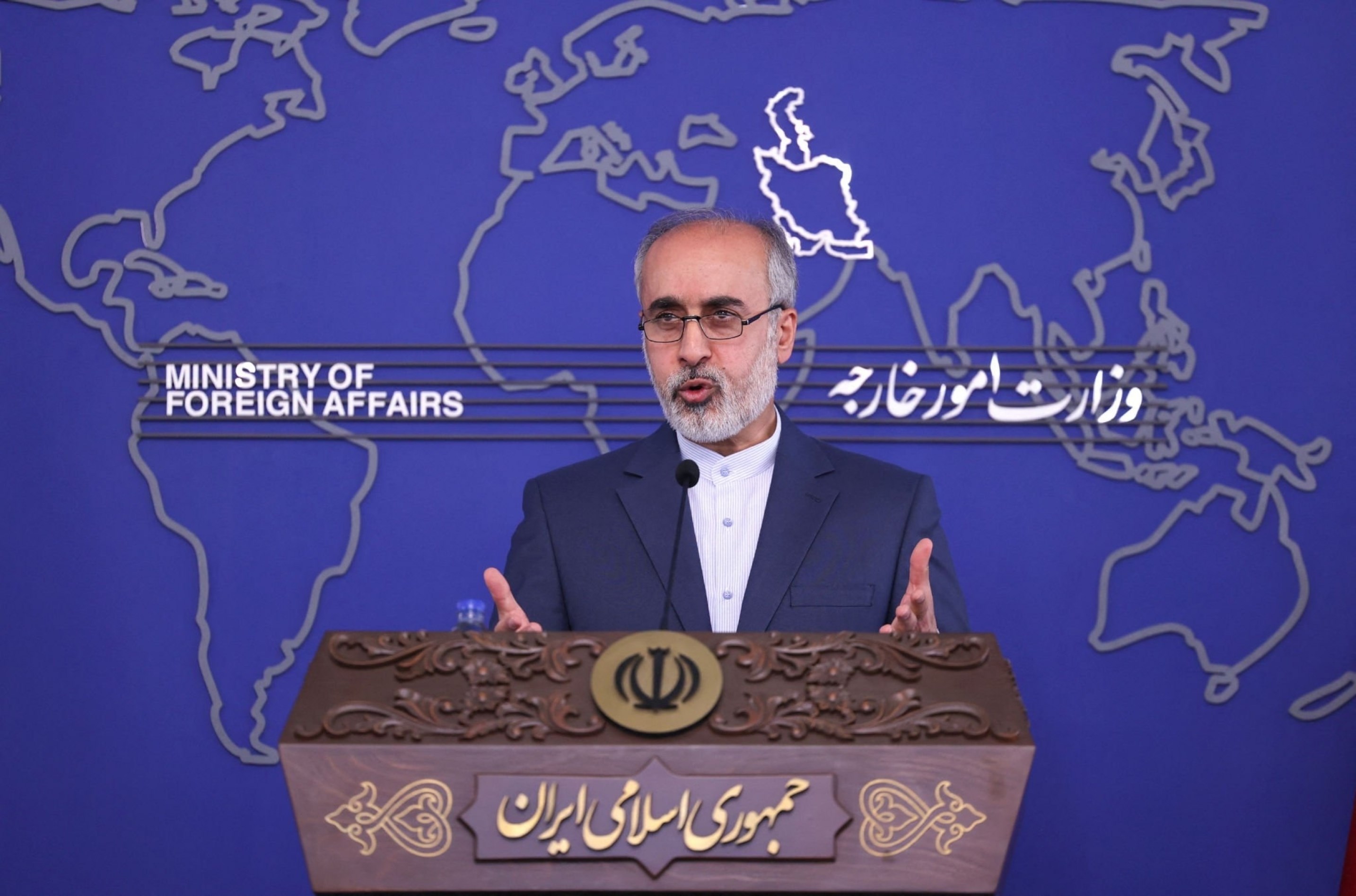Iranian MFA slams Canada's modern-day slavery, exploitation
Iranian Foreign Ministry spokesman Nasser Kanaani expresses deep concern over the mistreatment of migrant workers and indigenous communities in Canada.
-

Iran's Foreign Ministry spokesman Nasser Kanani speaks during a press conference in the capital Tehran on October 3, 2022. (AFP)
The shadow of "slavery" still hangs over Canada, Iranian Foreign Ministry Spokesman Nasser Kanaani says.
In response to the Human Rights Council's special rapporteur's report on the mistreatment of migrant workers and indigenous communities in Canada, Kanaani expressed deep concern on Friday. Kanaani remarked that the special rapporteur's findings shed light on Canada's troubling approach to humanitarian issues, despite its global stance on advocating for human rights.
Kanaani stressed that the Canadian government's actions do not align with their official claims, as they observe the emergence of modern-day forms of exploitation reminiscent of slavery within Canadian policies.
Kanaani urged for a renewed focus on upholding the dignity of indigenous populations and migrant workers, cessation of discriminatory practices, and intensified oversight by international human rights organizations.
Earlier in June, Canadian media reported the discovery of at least 66 potential unmarked graves at a site of a former boarding school for Indigenous children in the westernmost Canadian province of British Columbia.
The Indian Civilization Act of 1819 established such schools in Canada, and they existed until the 1960s to culturally assimilate Indigenous children by removing them from their families and communities and forcibly suppressing their native identities, languages, and beliefs.
One of the local tribes discovered a possible burial site at the boarding school site, 15 kilometers (9.3 miles) from the city of Williams Lake.
In Canada, indigenous people also face a three-fold higher risk of experiencing sexual assault or rape. Furthermore, disturbing suicide rates are evident within this group, with 35 deaths per 100,000 Indigenous women, as opposed to 5 per 100,000 non-Indigenous women.
Even more shocking is the practice of forced sterilization, often associated with underprivileged nations, persisting within parts of Canada, often carried out by white medical practitioners.
Although precise figures elude measurement, Senator Yvonne Boyer approximates that around 12,000 Indigenous women have been subjected to involuntary sterilization since the 1970s.
Despite heightened awareness of the challenges Indigenous women face, experts assert that the full extent of their suffering remains largely unacknowledged, with numerous decades of crimes going unreported to the authorities.
Dr. Karine Duhamel, having engaged with over 3,000 Indigenous family members and violence survivors, spearheaded an inquiry into Missing and Murdered Indigenous Women and Girls, culminating in a 2019 report that revealed a significant number of cases absent from official police records.
Read more: Unveiling the silent genocide behind Canada's progressive façade

 3 Min Read
3 Min Read








